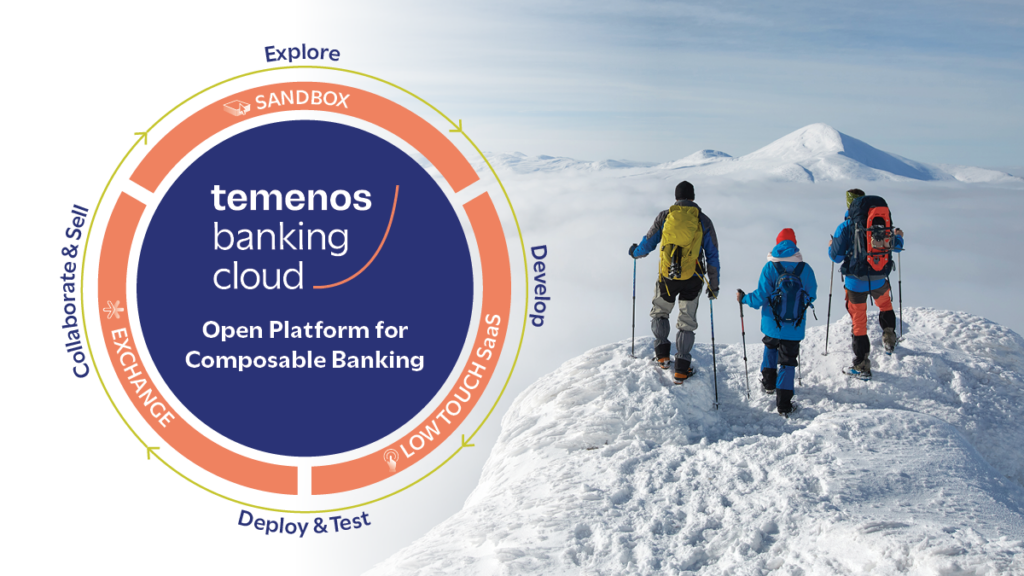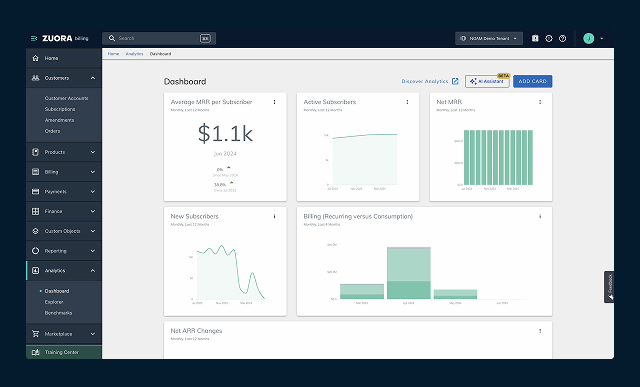Temenos has published a new ‘high-water’ benchmark performance result for the company’s own Temenos Banking Cloud on Microsoft Azure and MongoDB Atlas infrastructure.
But why does any of that matter?
It matters because Temenos is a company that makes enterprise software for financial services to underpin the new age of so-called Banking-as-a-Service (BaaS) i.e. the provision of cloud layers, connections and instances designed to underpin financial services supplied from a public cloud (and in some instances hybrid private cloud mix) for modern financial operations – and, the company is being used as the customer-du-jour by several enterprise technology firms who all laud the Temenos approach to implementing their platforms.
It also matters, because Microsoft Azure matters, obviously.
Ultimately, it also matters because MongoDB Atlas infrastructure automates infrastructure provisioning, setup, and deployment so IT teams (and we mean the full gamut of DevOps and wider data-developer DBS operations staff) can get the database resources they need, when they need them – and, when we’re talking about massively scalable compute and storage resources for Banking-as-a-Service (BaaS), that matters because application and service functionality needs to be highly adaptive, powerful and flexible, so automation is everything.
The (above noted) benchmark scenario simulated a client with 50 million retail customers, 100 million accounts and a Banking-as-a-Service (BaaS) offering for 10 brands and 50 million embedded finance customers on a single cloud instance.
Beyond core transactions
In the test, Temenos Banking Cloud processed 200 million embedded finance loans and 100 million retail accounts at a record-breaking 150,000 transactions per second. In doing so, Temenos platform may have ‘proved’ it’s robust and scalable to support banks’ business models for growth through BaaS or distributing their products themselves. The benchmark included not just core transaction processing, but a composed solution combining payments, financial crime mitigation (FCM), data hub and digital channels.
The performance benchmark with Microsoft and MongoDB shows the unmatched scalability of Temenos’ cloud-native and composable platform helping banks massively scale and cater for the high volumes of transactions in the BaaS world where multiple brands are hosted on a single platform.
The benchmark also underscores the advances Temenos has made to provide a leaner and greener infrastructure, helping banks scale efficiently and achieve their sustainability goals. Temenos cloud architecture elastically scales, enabling banks to process higher volumes of transactions showing 49% like-for-like improvement for the tested workloads compared to previous release.
Document model directives
“Temenos’ cloud-native, microservices-based architecture on MongoDB Atlas database gives customers flexibility, while also improving security, performance and scalability,” said Boris Bialek, managing director of industry solutions at MongoDB. “The document model is a key ingredient for a composable banking architecture and the high throughput of the benchmark proves that the resilience of the Temenos banking platform and MongoDB’s developer data platform can support the needs of even the largest global banks.”
A document is a record in a document database and a document typically stores information about one object and any of its related metadata. Documents store data in ‘field-value pairs’ and the values can be a variety of types and structures, including strings, numbers, dates, arrays, or objects. Documents can be stored in formats like JSON, BSON and XML.
Document databases offer a variety of advantages, including an intuitive data model that is fast and easy for developers to work with, a flexible schema that allows for the data model to evolve as application needs change and the ability to horizontally scale out.
Because of these advantages, document databases are general-purpose databases that can be used in a variety of use cases and industries. Document databases are officially considered to be non-relational (or NoSQL) databases. Instead of storing data in fixed rows and columns, document databases use flexible documents.
Temenos says it is the only software company to offer a single platform for any type of bank, retail, corporate or wealth; suitable for any size bank; and also, cloud-native, readily available on all major public cloud providers for banks to run themselves or as a SaaS solution via Temenos Banking Cloud.
Tony Coleman, chief technology officer at Temenos says that no other banking technology vendor comes close to the performance and scalability of Temenos Banking Cloud.
“We consistently invest more in cloud technologies and have more banks live with core banking in the cloud than any of our peers. With global non-cash transaction volumes skyrocketing in response to fast-emerging trends like BaaS, banks need a platform that allows them to elastically scale based on business demand, provide composable capabilities on-demand at a low cost, while reducing their environmental impact,” said Coleman.
This benchmark with Microsoft and MongoDB may prove to be significant in terms of highlighting the capability of Temenos’ platform to power the world’s biggest banks and their BaaS offerings with hundreds of millions of customers, efficiently and sustainably in the cloud.




